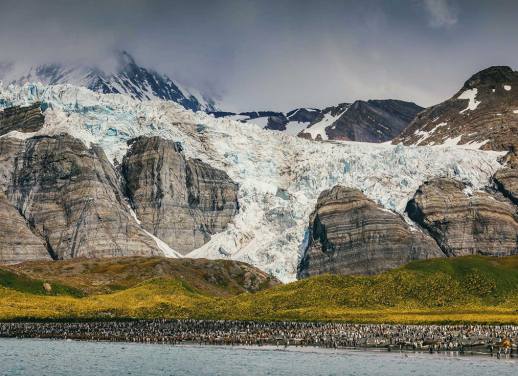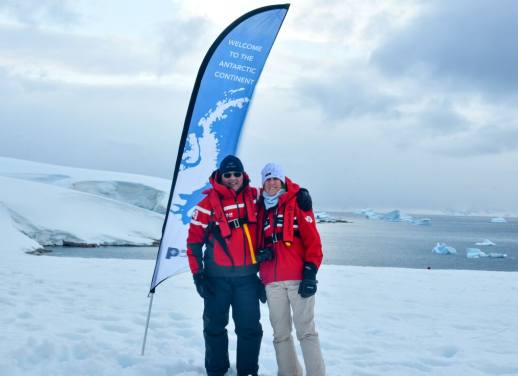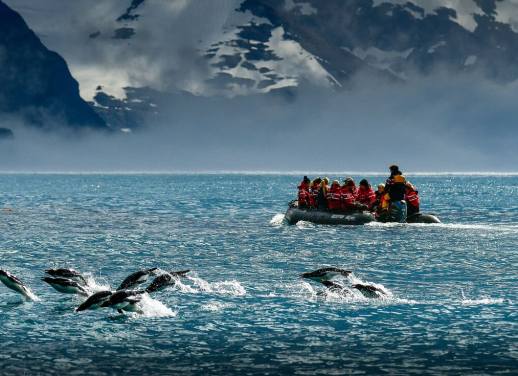“You’ll be tied to a rope and the doctor will be standing there with a defibrillator,” the guide says, soothingly.
“Oh,” says Mandi, now thoroughly terrified. “Great.”
Mandi is from Texas, and this is her first trip to Antarctica. In fact it’s her first time on anything bigger than a canoe – turns out they don’t get many 137-metre polar cruise ships in the Lone Star State. It’s more a ‘sunshine-and-Stetsons’ kind of place.
“The idea of going to Antarctica was just outrageous,” Mandi says. “I’ve never been on a ship. I’ve never even been out to sea. I started panicking a bit, you know. What if I’m afraid on the boat? What if I get seasick? I had no idea what to expect.”
Mandi isn’t alone. Most first-time visitors have only a vague, Attenborough-ish mental image of Antarctica, fuelled by nature documentaries and glossy tour brochures (guilty as charged). Possibly penguins might be involved. Bobbing icebergs… snow. That kind of thing. Mandi is one of about 50,000 travellers who visit the Antarctic Peninsula every year, drawn by some deep, unshakable feeling that this might be the last place on Earth where you can experience a proper adventure.
“I came on this trip by myself,” she says. “People said, ‘you’re going on vacation by yourself, that’s weird’. But it hasn’t felt like I’ve gone by myself at all. I’ve made lots of friends. This whole trip, I’ve been completely engrossed in the lectures and talking to the scientists and all the people on board, but I think it’s the animals that are making me lose my mind.”
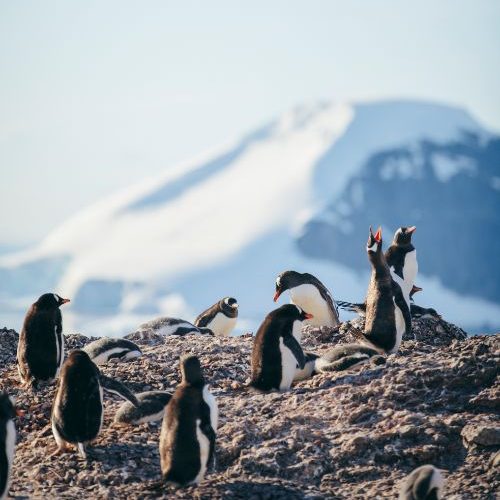
The variety and abundance of life in Antarctica does take people by surprise. Despite being the highest, driest and most remote continent on the planet, Antarctica is home to over 235 marine species, 100 million nesting birds (mostly albatross, petrels, skuas and terns), migrating whales, elephant seals, leopard seals and Weddell seals, red blooms of polar krill, regal king penguins and toy-like Adélie penguins, waddling in squadrons across the ice.
“The first time I saw a whale was when I was sitting down to dinner,” Mandi says. “Just there he was, out the window.”
The thing that’s making Mandi nervous isn’t the wildlife, although she admits it’s been hard to contain her enthusiasm at times. (“When I experience extreme joy and pleasure, it becomes part of the public record. I’ve been learning as I get older that I don’t have to say everything I think and feel, but yeah, it’s a process. No squealing in Antarctica.”)
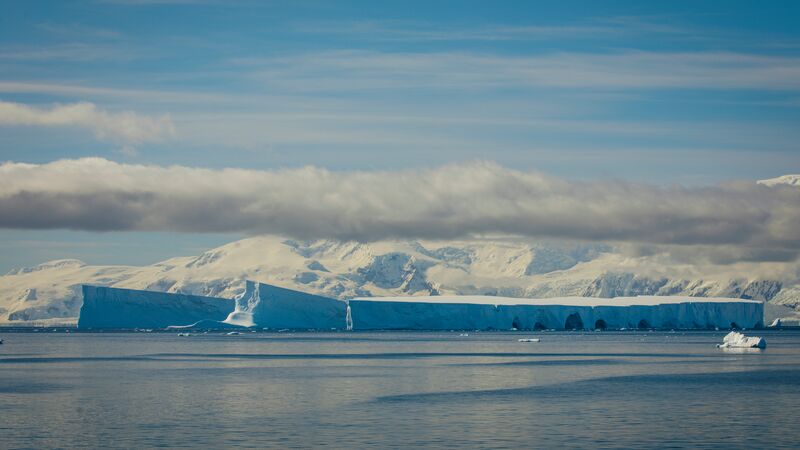
The Polar Plunge has become an Antarctic rite of passage. It consists of changing into bathers – you remembered to pack a bikini for your Antarctic holiday, right? – lassoing a stout rope around your waist, then leaping into the inky, freezing water. You’re not allowed to dip your toe or gingerly acclimatise inch-by-inch, either. This is all or nothing. A leap of faith. Think of it like skydiving from an altitude of three feet.
Antarctic waters, as you might imagine, are unpleasant for land mammals. Temperatures range from 2°C to a blood-curdling -0.8°C, but when you’re paddling over a thousand feet of sub-zero blackness, home to leopard seals, orca and other many-eyed terrors of the deep, the difference feels pretty academic.
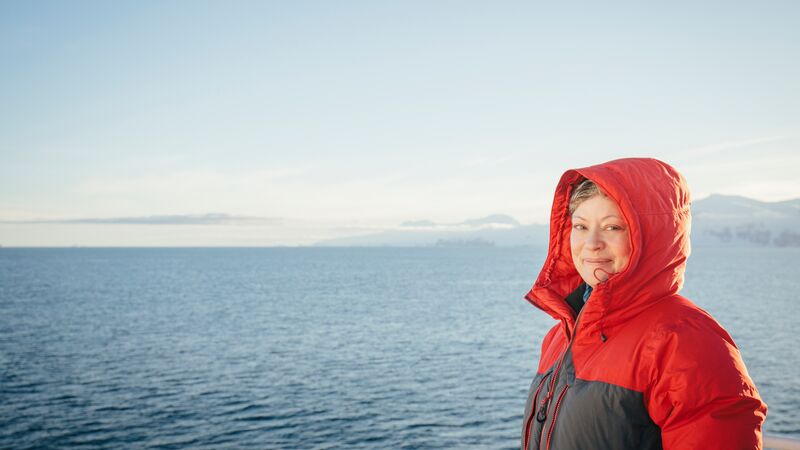
“My friends know how much I love the heat and the sun,” Mandi says, ahead of the big day, “so the idea that I would jump into the Antarctic waters is ridiculous – like seriously ridiculous. It’s not me. I’m a definite maybe.”
Eventually, the ship drops anchor. It’s plunge time. Travellers hurry back to their cabins to change, emerging a few minutes later in bathers and nervous smiles. Everyone’s arm hair is already standing on end. The rest of the non-plunging passengers are watching from the upper rail, getting ready to enjoy some light Antarctic voyeurism, partial nudity, and the smug knowledge that it’s not them in the water.
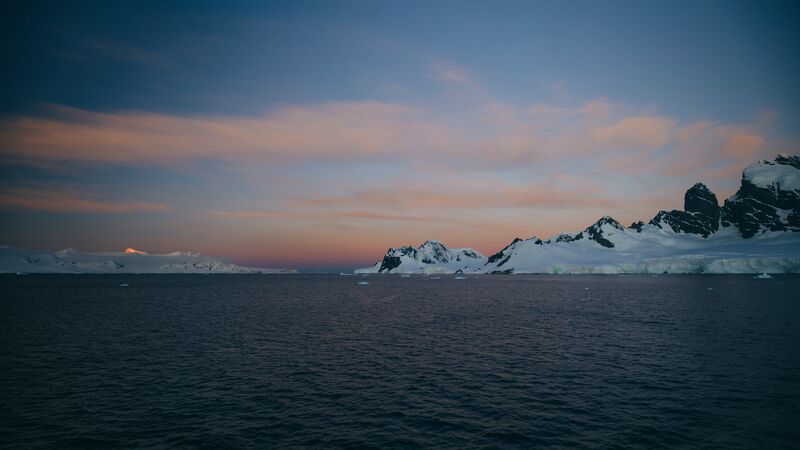
Mandi follows the other volunteers to the lower deck, where there’s a small, rubber-gripped dive platform. The water is perfectly flat and dark, like liquid mercury. A platoon of medical staff is standing by with cocoa, blankets and defibrillators. Mandi’s expression seems to indicate that the presence of defibrillators is somehow less reassuring than no defibrillators at all.
She takes a deep breath, turns to smile that megawatt Texan smile, turns back, and jumps.
Interested in an Antarctic adventure? Explore our full range of tours here.

